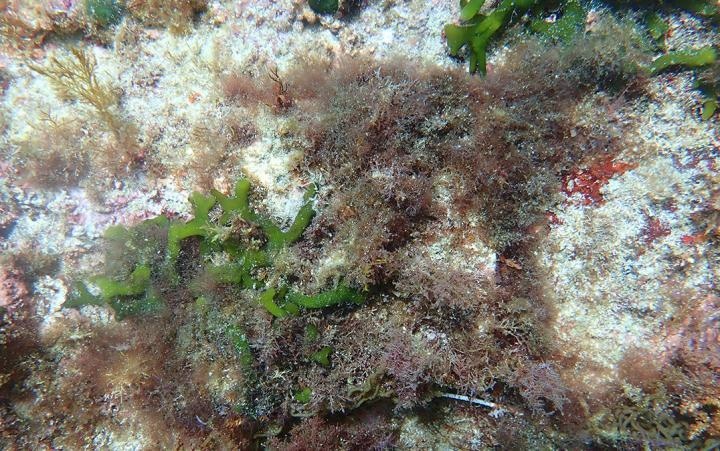Jan 18 2021
The New Year’s saying “out with the old, in with the new” may not suit the marine environment. Scientists from Japan have found out that ocean acidification maintains algal communities blocked in a reduced state of low biodiversity.
 Photo of algal communities. Image Credit: University of Tsukuba.
Photo of algal communities. Image Credit: University of Tsukuba.
Published in the Global Change Biology journal on January 11th, 2021, the new study by scientists from the University of Tsukuba shows that as the level of oceanic carbon dioxide increases, the ecological complexity and biodiversity of marine algal communities tend to decrease.
Ocean acidification relates to the persistent increase in the acidity of the Earth’s oceans, due to the absorption of atmospheric carbon dioxide (CO2). The emission of CO2 induced by humans by the combustion of fossil fuels is the leading contributor to this acidification.
Ocean acidification is harmful to a lot of different marine organisms. This affects not only ecosystem functions, but the goods and services that people get from marine resources.
Ben P. Harvey, Study Lead Author and Professor, University of Tsukuba
The team analyzed the variations brought about by CO2-enriched waters in algal communities by fixing tiles in the ocean for the algae to grow. The tiles were positioned in reference conditions (the ones that symbolize the function and structure of biological communities that are subjected to no or very less human-induced disturbances) and acidified circumstances.
A natural CO2 seep was utilized by the researchers for the acidified conditions to show the conditions of CO2 at the end of the 21st century, and discrepancies between the warmer months (July to January) and cooler months (January to July) were compared.
We found that the tiles ended up being taken over by turf algae in the acidified conditions, and the communities had lower diversity, complexity and biomass. This pattern was consistent throughout the seasons, keeping these communities locked in simplified systems that had low biodiversity.
Ben P. Harvey, Study Lead Author and Professor, University of Tsukuba
Moreover, the researchers transplanted standard communities between the two conditions. Eventually, the transplanted communities corresponded with the other communities present around them (that is, high complexity, biodiversity, and biomass under the reference conditions, and vice versa for the acidified conditions).
By understanding the ecological processes that change community structure, we can better evaluate how ocean acidification is likely to alter communities in the future.
Ben P. Harvey, Study Lead Author and Professor, University of Tsukuba
The study findings signify that if there is no decrease in the atmospheric CO2 emissions, one might observe a high loss of huge algal habitats (like kelp forests). However, the research also demonstrates that shallow-water marine communities can be retrieved if considerable reductions in CO2 emissions are realized, like those appealed by the Paris Agreement.
Journal Reference:
Harvey, B. P., et al. (2021) Ocean acidification locks algal communities in a species‐poor early successional stage. Global Change Biology. doi.org/10.1111/gcb.15455.